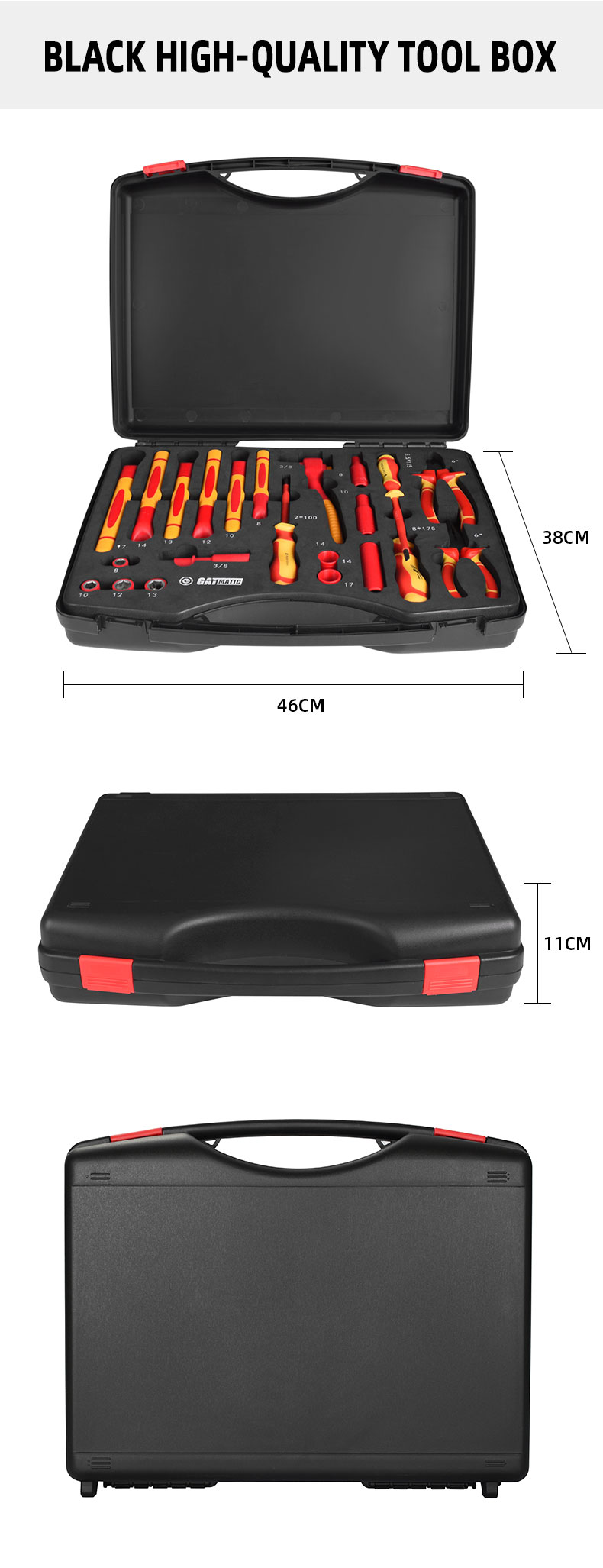How are tools electrically insulated to prevent shock?
When it comes to working with electric tools, safety should always be a top priority. Electricians, technicians, and even DIY enthusiasts rely on various tools to perform tasks involving electricity. One crucial aspect of ensuring safety is electrical insulation. In this article, we will delve into the world of electrical insulation, exploring how tools are electrically insulated to prevent potentially life-threatening shocks.
I.Understanding Electrical Insulation
What is Electrical Insulation?
Electrical insulation is a protective measure employed in tools and equipment to prevent the flow of electrical current to unintended paths. It acts as a barrier between conductive parts and the user, reducing the risk of electrical shock.
Importance of Electrical Insulation
Electrical insulation is vital because it:
- Safeguards Lives:Prevents electric shock, which can be fatal.
- Protects Equipment:Extends the lifespan of tools and prevents damage.
- Ensures Reliable Performance: Maintains consistent tool functionality.
- Meets Safety Standards:Compliance with safety regulations is essential.
II. Materials Used for Electrical Insulation
Rubber
Rubber is a common material for electrical insulation due to its:
- High Dielectric Strength:Resists electrical breakdown.
- Flexibility:Allows for easy application.
- Durability: Withstands wear and tear.
Plastic
Plastic materials, such as PVC (Polyvinyl Chloride) and ABS (Acrylonitrile Butadiene Styrene), are widely used for insulation, offering:
- Insulating Properties:Prevents electrical conduction.
- Cost-Effectiveness:Economical for mass production.
- Versatility:Suitable for various tool types.
Fiberglass
Fiberglass is employed for its:
- High Thermal Resistance:Ideal for high-temperature applications.
- Excellent Dielectric Properties:Maintains insulation even in challenging conditions.
Lightweight Nature: Doesn’t add significant weight to tools.
III. Methods of Electrical Insulation
Encapsulation
Tools can be encapsulated with insulating materials to create a protective barrier. This method is commonly used for power cords and handheld devices.
Coating
Coating involves applying an insulating layer directly onto the tool’s surface. It’s effective for small tools and precision equipment.
Insulated Handles
Many tools feature insulated handles made of rubber or plastic. This prevents electrical current from reaching the user’s hand.
Double Insulation
Some tools, especially power tools, incorporate double insulation, which adds an extra layer of protection.
IV. Testing and Quality Assurance
Dielectric Testing
Tools undergo dielectric testing to ensure their insulation integrity. This involves subjecting them to high voltage to check for leaks or breakdowns.
Quality Control
Manufacturers implement strict quality control measures to guarantee that tools meet safety standards and have reliable insulation.
Conclusion
Electrical insulation is a crucial element in preventing electrical shocks while using various tools. Understanding the materials and methods involved in insulating tools can help users make informed decisions about their safety equipment.
Access Now: https://www.gat-matic.com
FAQs
1. Why is electrical insulation important for hand tools?
Electrical insulation in hand tools is essential to prevent accidental shocks when working with live electrical circuits.
2. Do all tools require electrical insulation?
No, not all tools require electrical insulation. However, it is highly recommended for any tool that may come into contact with electricity.
3. How can I check if my tools are properly insulated?
You can perform a visual inspection for any damage to the insulation and ensure that handles are made of insulating materials.
4. Can electrical insulation wear out over time?
Yes, electrical insulation can deteriorate with age and usage. Regular maintenance and inspections are advisable.
5. Are there any DIY methods for electrical insulation repair?
Repairing electrical insulation should be left to professionals to ensure safety. DIY repairs can be dangerous and may not provide adequate protection.
Describe Your Needs In Detail!
We will carefully evaluate your needs and give professional solutions.





